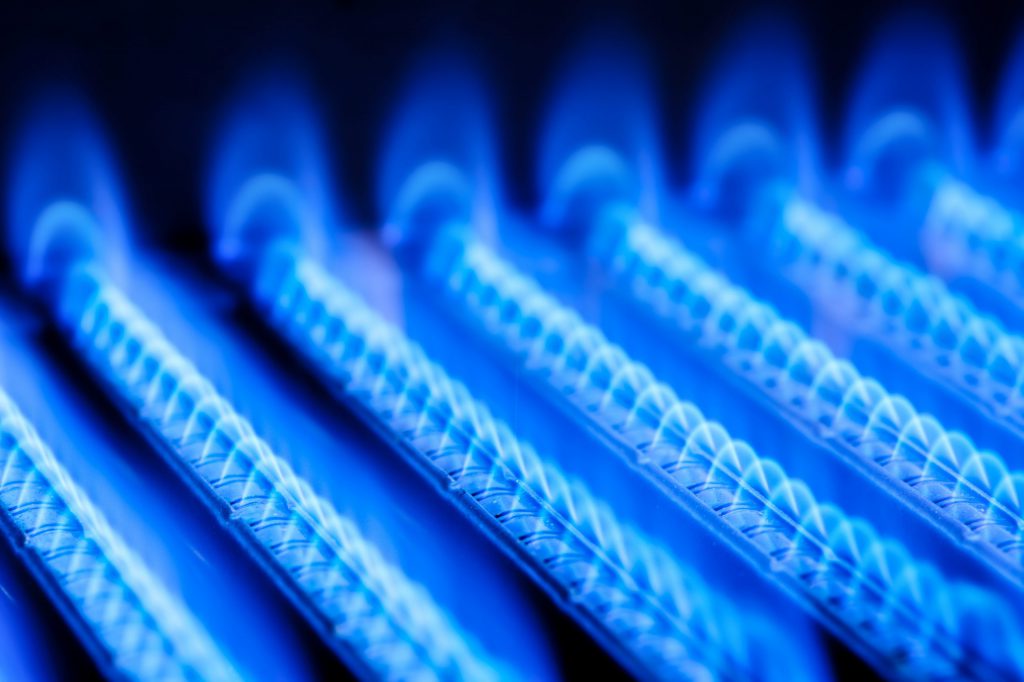We Energies & Alliant Energy are seeking approval to spend billions on new gas plants. Find out more.
Long pushed as a cleaner energy source, natural gas is no more natural than coal or oil, and continued reliance on this fossil fuel will mean disaster for our climate.
The fossil fuel known as “natural” gas is a mixture of hydrocarbon molecules, mostly methane, that is used to power about 30% of energy demand in the United States. There are two, chemically identical, types of this gas: conventional natural gas and renewable natural gas. Conventional natural gas, which accounts for the vast majority of natural gas use, is a fossil fuel just like oil and coal that needs to be extracted from deposits in the earth. Renewable natural gas is formed through the anaerobic digestion of landfill waste and livestock manure, meaning there can be a continual (renewable) supply of it.
Natural gas is much cleaner-burning that other fossil fuels. Compared to coal, it emits about half as much carbon dioxide (CO2) to produce the same amount of energy. Burning natural gas also produces very little sulfur, mercury or particulate matter. These reduced levels of pollution have led natural gas to be touted as an environmentally-friendly “bridge” fuel to a cleaner energy system.
However, from a climate perspective there are two main issues with increased production of natural gas. The first is that while burning natural gas emits less CO2 than other fossil fuels, it is still emitting CO2. As made clear in the Intergovernmental Panel on Climate Change’s most recent assessment of climate change science, we need to reach net zero carbon emissions by mid-century to limit global warming to 1.5-2°C, the goal set by the Paris Agreement in 2015. Thus, the relevant comparison point for natural gas is no longer to coal and other fossil fuels, but to carbon-free energy sources like wind and solar. Additionally, investing in natural gas infrastructure development today creates a strong financial incentive to continue using gas for years to come that could delay wider adoption of carbon-free energy sources.
The second issue is that the climate benefits of natural gas over other fossil fuels has come into question. Methane—the primary component of natural gas—is itself a potent greenhouse gas. Recent research indicates that incidental releases or “leaks” of methane from the extraction, production and transportation of natural gas greatly reduce or even eliminate the climate benefits of natural gas. For example, studies have reported that the Environmental Protection Agency substantially underestimates—by 50 to 100%—actual methane leakage.
Furthermore, although methane breaks down in the atmosphere faster than CO2, it has a stronger warming effect than CO2 while it is there. Methane has approximately 86x greater warming potential than CO2 over a 20-year timespan, and approximately 30x greater warming potential over a 100-year timespan. When climate tipping points are expected as early as mid-century, this far greater warming potential over 20 years becomes very important. However, many natural gas climate impact analyses use the 100-year potential for methane, which underestimates its warming impact in the short-term.
And finally, while burning natural gas produces very little particulate matter air pollution on its own, it does produce nitrous oxides which combine with other airborne pollutants to form particulate matter and ozone. Ozone pollution can reduce lung function, making it hard to breath, and aggravate diseases like asthma, emphysema, and chronic bronchitis. Fine particulate matter air pollution consists of tiny airborne particles that can penetrate deeply into the lungs, causing increased risk of asthma, heart attack, stroke and premature death.
All this taken together demonstrates that while burning natural gas is an improvement over coal and other fossils fuels, it is still harmful both to the health of nearby communities and our climate. Continued reliance on natural gas—not to mention any further development— at the expense of emissions-free alternatives will impede our ability to meet the Paris Agreement climate goals and avoid the worst impacts of global warming.

